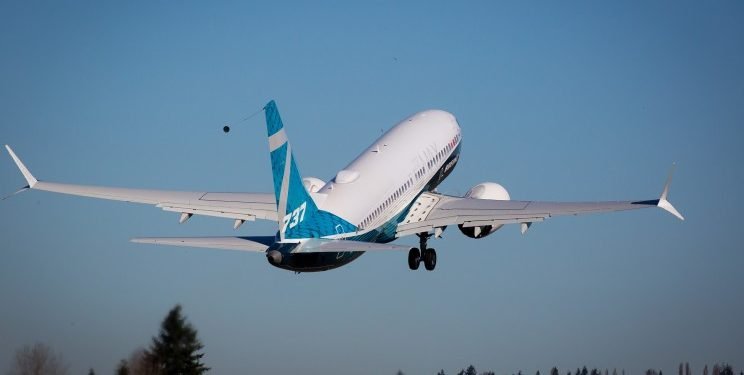A whistleblower who publicly raised doubts about the production standard at Boeing has been found dead days after testifying against the airplane manufacturer.
Also read: NASCON announces 2 for 100 bonus share issue
Fox News Digital reported that John Barnett, 62 died from what appeared to be a self-inflicted gunshot wound on Saturday, citing the Charleston County Coroner’s Office.
The County Coroner said the 62-year-old had died from a “self-inflicted” wound on 9 March and police were investigating.
Barnett was employed by Boeing for over three decades before retiring in 2017. He worked as a quality control engineer at the company.
From 2010, he worked as a quality manager at the North Charleston plant making the 787 Dreamliner, a state-of-the-art airliner used mainly on long-haul routes.
In the days before his death, he had been giving evidence in a whistleblower lawsuit against the company.
John Barnett was cross-examined by Boeing’s lawyers and his own attorney days before he died. The court planned for him to answer more questions on Saturday, but he did not appear as planned.
He was later found dead in his truck, which was parked in a hotel parking garage.
Boeing in a statement said “We are saddened by Mr. Barnett’s passing, and our thoughts are with his family and friends.”
In 2019, Mr Barnett told the BBC that under-pressure workers had been deliberately fitting sub-standard parts to aircraft on the production line.
He also said he had uncovered serious problems with oxygen systems, which could mean one in four breathing masks would not work in an emergency.
He said soon after starting work in South Carolina he had become concerned that the push to get new aircraft built meant the assembly process was rushed and safety was compromised, something the company denied.
He later told the BBC that workers had failed to follow procedures intended to track components through the factory, allowing defective components to go missing.
He said in some cases, sub-standard parts had even been removed from scrap bins and fitted to planes that were being built to prevent delays on the production line.
He also claimed that tests on emergency oxygen systems due to be fitted to the 787 showed a failure rate of 25%, meaning that one in four could fail to deploy in a real-life emergency.
Mr Barnett said he had alerted managers to his concerns, but no action had been taken.
Boeing denied his assertions. However, a 2017 review by the US regulator, the Federal Aviation Administration (FAA), did uphold some of Mr Barnett’s concerns.
It established that the location of at least 53 “non-conforming” parts in the factory was unknown, and that they were considered lost. Boeing was ordered to take remedial action.
On the oxygen cylinders issue, the company said that in 2017 it had “identified some oxygen bottles received from the supplier that were not deploying properly”. But it denied that any of them were actually fitted on aircraft.
After retiring, he embarked on a long-running legal action against the company.
He accused it of denigrating his character and hampering his career because of the issues he pointed out – charges rejected by Boeing.
At the time of his death, Mr Barnett had been in Charleston for legal interviews linked to that case.
Nnamdi Maduakor is a Writer, Investor and Entrepreneur





















































